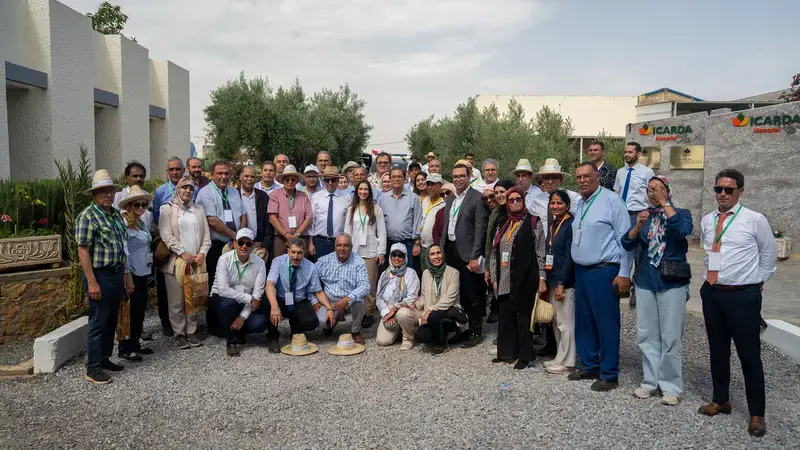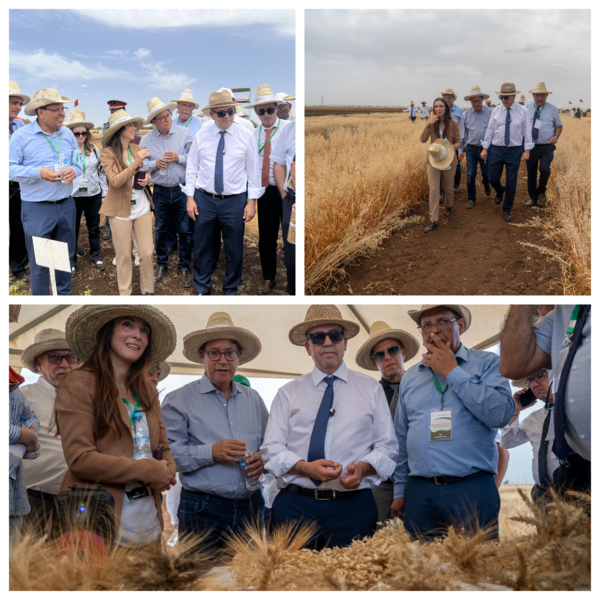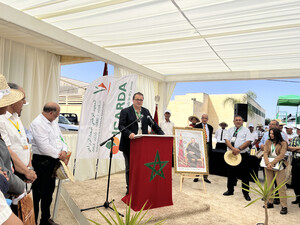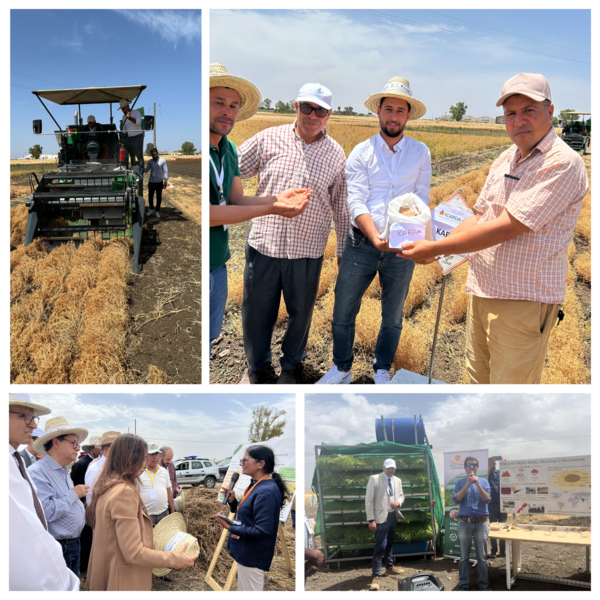Morocco’s Minister of Agriculture joins ICARDA-INRA field day at Marchouch Research Station

Marchouch, Morocco | May 28, 2025 – On an unseasonably hot spring day that mirrors Morocco’s growing climate challenges, ICARDA, in collaboration with Institut National de la Recherche Agronomique (INRA) held their annual Field Day at Marchouch Research Station.
H.E. Ahmed El Bouari, Minister of Agriculture, Maritime Fisheries, Rural Development, and Water and Forests, joined ICARDA Director General Aly Abousabaa and INRA Director Pr. Lamiae Ghaouti to tour the experimental plots where collaborative research is being translated into practical, climate-smart solutions for smallholder farmers in Morocco and beyond.

Located just an hour from Rabat, the ICARDA-INRA Marchouch research station buzzed with energy as over 350 participants, including farmers, seed producers, government officials, researchers, and students gathered to explore the fruits of collaboration between ICARDA and INRA, seeing firsthand the groundbreaking agricultural practices and innovations designed to help farmers adapt and thrive despite rising temperatures and increasingly unpredictable weather patterns.
In her opening remarks, Pr. Lamiae Ghaouti stressed the importance of connecting researchers, farmers and seed producers to accelerate the adoption of sustainable agricultural practices.

Dr. Michael Baum, Research Team Leader - Breeding and Scaling Improved Varieties of Dryland Cereals and Pulses at ICARDA, highlighted that long-term innovation is essential to boosting productivity across Morocco’s 5 million hectares of rainfed farming.
Attendees were introduced to more than 72 climate-resilient cereal and legume varieties developed for local agro-ecological conditions. As part of the joint INRA-ICARDA Moroccan Collaborative Grants Program (MCGP), they explored cropping systems that integrate direct seeding with rotations of legumes and forage crops. These systems have recorded straw yields exceeding 3,000 kg per hectare and have resulted in yield increases of over 2,000 kg per hectare, when supplemental irrigation, applied at minimal levels of 15 mm is combined with direct seeding.
As stocks of sheep and goats have been very much reduced in Morocco due to years of excessive drought, the low-tech “do it yourself” vertical hydroponic system was also showcased as a promising solution that can be scaled across Morocco to address the urgent need to find alternative feed and fodder production. Last but not least, ICARDA scientists have also demonstrated the harvesting of lentils by combine harvester, which is the same machine traditionally used for cereals, highlighting practical advances in mechanization for local farmers.

While a single field day cannot capture all the challenges at stake when it comes to adapting agriculture to the impacts of climate change, this gathering represented a significant step toward long-lasting solutions. It offered a platform for dialogue where farmers, scientists, and policymakers stand on common ground. Each innovation on display reflects a strong commitment to addressing the challenges of climate change, aligning science with Morocco’s national agricultural ambitions. And behind it all, ICARDA is leading the way not only as a driver of groundbreaking solutions but as a partner in resilience, pushing forward the innovations and alliances to improve the livelihoods of smallholder farmers and to build resilient agricultural systems in drylands and beyond.
This field day was made possible with support from the Scaling for Impact program.
